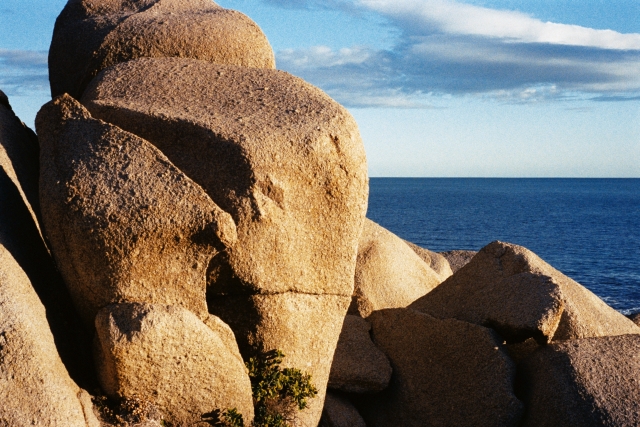
'An aphorism, properly stamped and molded, has not been "deciphered" when it has simply been read; rather one has then to begin its interpretation, for which is required an art of interpretation.' -- Nietzsche, 'On the Genealogy of Morals'
|
|
'An aphorism, properly stamped and molded, has not been "deciphered" when it has simply been read; rather one has then to begin its interpretation, for which is required an art of interpretation.' -- Nietzsche, 'On the Genealogy of Morals'
|
|
|
Lyotard + the sublime
« Previous |
|Next »
|
|
|
May 25, 2009
The Kantian roots of the sublime is awe and exhilaration and it causes us to shudder.Luke White says that in the 18th and 19th century the sublime:
centrally implied an experience of being overwhelmed by art or nature, of being thrown into a kind of ecstasy of awe, wonder or terror. As the century wore on, it became increasingly associated with the paradoxical pleasure of the terrible and horrible, and increasingly understood as separate and even opposite to the beautiful: whereas the beautiful was pleasing to behold because it was small, pretty, soft, harmonious, and delicate, the sublime was pleasing in that it was majestic, grand, awesome, craggy, formless (monstrous even, for some writers) or terrible. Thus if a flower was pretty, what was sublime was a ravenous wild beast, a giant alpine crevasse, or the stormy ocean.
In one of his best-known essays, "An Answer to the Question: What Is Postmodernism?" Jean-Francois Lyotard suggests, that the sublime has become one of the key modes of aesthetic engagement in the postmodern era.
According to Jean-Francois Lyotard when art expresses the sublime it is “to present the fact that the unpresentable exists.” Lyotard sees the “fundamental task” of the avant-garde in its aesthetic resistance to the rationalising forces of capitalism through “bearing pictorial or otherwise expressive witness to the inexpressible. He views pop music and Hollywood cinema as not having within them the radical potential of the aesthetic that it is the mission of the avant-garde to preserve. Lyotard’s analysis is that the sublime, as a disruption in the smooth functioning of capitalism’s rational calculus of profitability, is fundamentally subversive.
According to Luke White in his Lyotard, Capitalism and the Sublime the sublime represents:
a break in the flow of discourse, where it isforced to confront its other (in Lyotard’s terms, something like the différend, what cannot be spoken, a muteness outside language) a moment in which the speaking and knowing subject is faced with the very aporia from whichdiscourse comes into being: a moment of “Is it – is something – is anything –happening?” (rather than “Such-and such is happening,” or even “Is this thing happening?”).
This logic of the 'now' is contrasted with that of the 'new' in which art (produced by the transavant-garde) strikes a balance between providing some form of “innovation” and giving the audience something familiar through which to start to make sense of this ‘new’ thing. The new is in collusion with the logic of the market... It is also to be seen in the 'neoexpressionist' and 'transavantgarde' painting that seemed to dominate the art markets of the 1980s, with painters such as Georg Baselitz, Francesco Clemente or Julian Schnabel fabricating their work from a tissue of quotations from art history. Against this, Lyotard pits a more positive form of the sublime which is embodied in avant-gardist art, a sublime which enters into the realm of the 'presentation of the unpresentable' through a programme of constant experimentation.
|
|
|
|
|
|
|
|
|
|
|

John,
re your request. I cannot find your page in design 21 --the number 28796 is wrong. Can you give me the right number so that I can what you are doing.